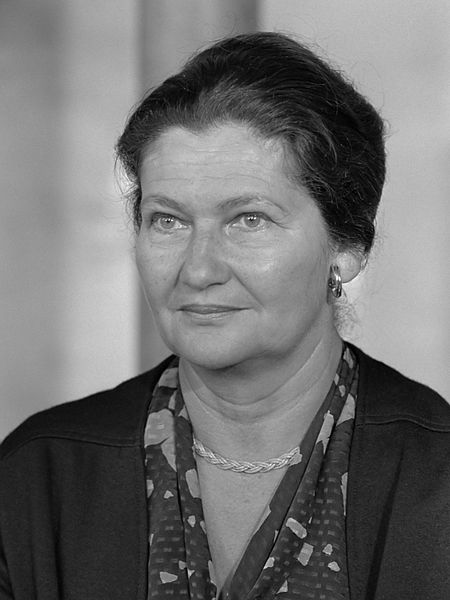Simone Veil
 |
VEIL, SIMONE (née Jacob; 1927 – 2018), French politician. Veil, the daughter of architect André Jacob, was born in Nice. Deported by the Nazis to Auschwitz – where all the members of her family perished – and Bergen-Belsen from March 1944 to May 1945, she survived, and resumed her studies and married Antoine Veil in 1946 on her return to France after World War II. She graduated in law and received the diploma of the Institute of Political Studies in Paris. She was appointed a magistrate in 1956. She was attaché titulaire to the Ministry of Justice (1957–59) and substitute detaché to the ministry (1954–65). Her first political steps came in 1969 when she joined the cabinet of René Pleven. Minister of Justice Veil represented France at the International Society of Criminology in 1959 and devoted herself to the reform of the laws concerning adoption, handicapped adults, and parental authority, and in conjunction with Professor Launay and Dr. Soule published L'Adoption, données médicales, psychologiques et sociales. She was appointed technical counselor in the cabinet of President René Pleven and was placed in charge of press relations, problems of civil law, and the judiciary. In 1970 she was appointed secretary to the Superior Council of the Magistracy. She is a chevalier of the National Order of Merit, and a member of the
Continuously active in organizations of former deportees and Shoah survivors, Veil enjoyed widespread respect in the field of World War II memorialization. In 2000, she was appointed the first president of the newly created Fondation pour la Mémoire de la Shoah.
BIBLIOGRAPHY:
M. Sarazin, Une femme Simone Veil (1987); M. Szafran, Simone Veil: un destin (1999); J.N. Jeanneney et al., Les femmes dans l'histoire (2005).
Sources: Encyclopaedia Judaica. © 2007 The Gale Group. All Rights Reserved.


